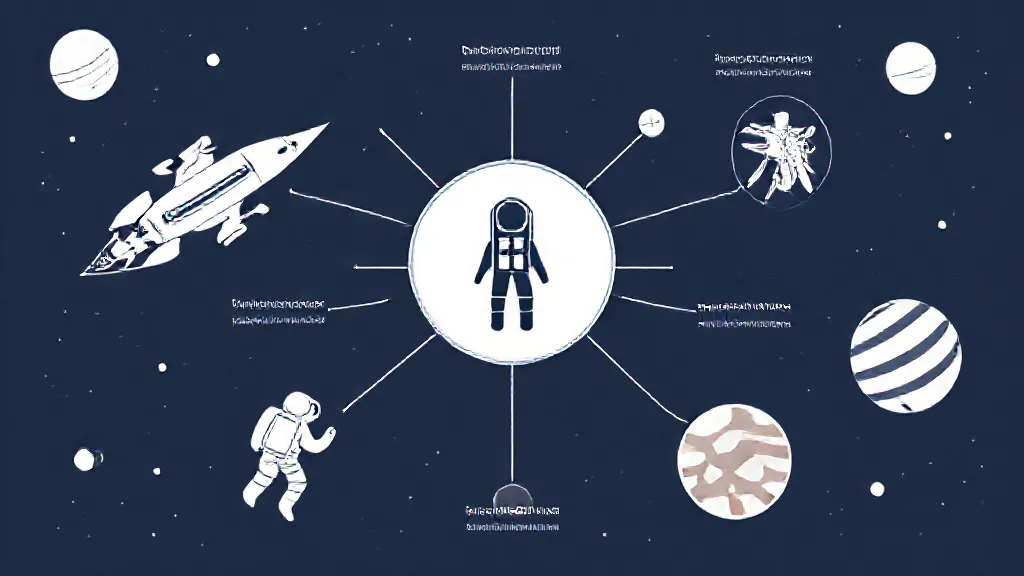Space exploration has always been at the forefront of human ambition, pushing the boundaries of science and technology. However, the journey to explore the cosmos is fraught with numerous challenges that can hinder progress. This article delves into the multifaceted obstacles faced in the realm of space exploration technology, offering insights into the technical, financial, and ethical dimensions that shape our quest to understand the universe.
Technical Limitations in Spacecraft Design
One of the primary challenges in space exploration technology is the complexity of spacecraft design. Spacecraft must be engineered to withstand extreme conditions, including intense radiation, vacuum, and temperature fluctuations. For instance, the Mars rovers, like Curiosity and Perseverance, are equipped with sophisticated systems to handle the harsh Martian environment.
The engineering behind these vehicles requires advanced materials and innovative designs, which can be both time-consuming and costly to develop.
The Financial Burden of Space Missions
Funding is a significant hurdle for space exploration initiatives. The costs associated with developing, launching, and maintaining space missions can reach billions of dollars.
For example, NASA's Artemis program, aimed at returning humans to the Moon, has an estimated budget of over $30 billion. This financial burden often leads to prioritization of projects, where only a select few missions receive the necessary funding, leaving many potential explorations on the drawing board.
Human Factors: Safety and Health Risks
Human spaceflight introduces additional challenges related to astronaut safety and health.
Prolonged exposure to microgravity can lead to various health issues, including muscle atrophy, bone density loss, and radiation exposure. The International Space Station (ISS) has provided valuable data on these effects, yet ensuring the long-term health of astronauts during missions to Mars or beyond remains a critical concern. Developing technology to mitigate these risks is essential for the future of manned space exploration.
The Role of International Collaboration
Space exploration is increasingly becoming a collaborative effort, involving multiple countries and organizations. While this can lead to shared resources and knowledge, it also introduces challenges related to coordination and communication among diverse teams. For instance, the ISS is a joint project between NASA, Roscosmos, ESA, JAXA, and CSA, requiring extensive collaboration.
However, differing political agendas and funding priorities can complicate these partnerships, potentially slowing progress on joint missions.
Ethical Considerations in Space Exploration
As we venture further into space, ethical dilemmas arise regarding planetary protection and the potential for contamination. The Outer Space Treaty of 1967 emphasizes the need to avoid harmful contamination of celestial bodies.
However, as missions to Mars and beyond become more feasible, the question of how to responsibly explore these environments without causing irreversible damage becomes increasingly pressing. Balancing exploration with environmental stewardship is a challenge that technologists and policymakers must address.
Technological Advancements and Their Challenges
The rapid pace of technological advancement presents both opportunities and challenges in space exploration.
Innovations such as reusable rockets, developed by companies like SpaceX, have reduced launch costs and increased accessibility to space. However, the integration of new technologies often comes with unforeseen complications, including reliability issues and the need for extensive testing. Ensuring that these technologies meet the rigorous demands of space travel is a continual challenge for engineers and scientists.
The Future of Space Exploration Technology
Looking ahead, the challenges of space exploration technology will likely evolve as we push the boundaries of our capabilities. Emerging fields such as artificial intelligence, robotics, and advanced propulsion systems hold the potential to revolutionize how we explore space. However, addressing the existing challenges—financial constraints, health risks, ethical considerations, and technological limitations—will be crucial for the success of future missions.
Conclusion: Navigating the Challenges Ahead
In conclusion, space exploration technology faces a myriad of challenges that require multifaceted solutions. Understanding and addressing these hurdles is essential for advancing our exploration of the cosmos. As we continue to innovate and collaborate, the potential for discovery remains limitless, but it is imperative that we navigate these challenges responsibly and ethically to ensure a sustainable future in space exploration.
